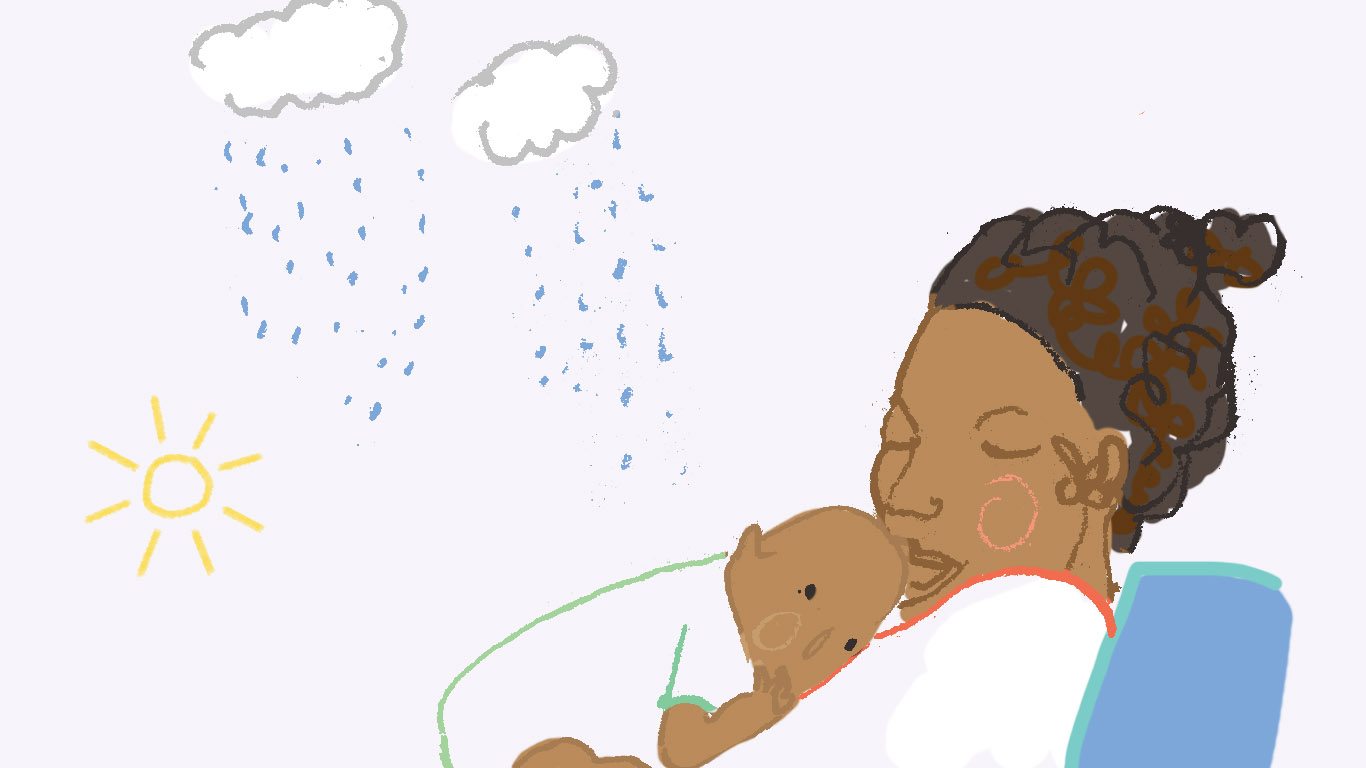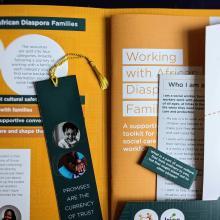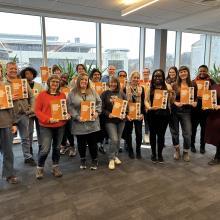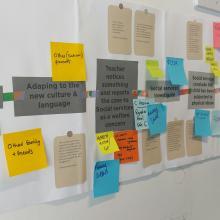For the past six months, we've had the privilege of partnering with Passion4Fusion (P4F). We've been working on a toolkit to help the social care workforce support African Diaspora families. Our focus has been on the African Diaspora community in Edinburgh and the Lothians - an area that P4F knows inside and out. They are familiar with the challenges faced by these families in their interactions with social workers. They also have a vision. They can see how getting these interactions right can impact children, families, and communities.
African Diaspora families face racism, prejudice, stereotypes, and cultural misunderstandings when using social services (Bernard, 2016). Challenges occur at different levels: individuals, institutions, or society. They may be based on conscious or unconscious bias (NSPCC, 2022). These biases can result in unequal outcomes. We see an over represetation of African Diaspora children in child protection system. Similtaneoulsy others receive inadequate support (Owen et al., 2009). We want to help practitioners support families by giving them knowledge and tools.
The idea of cultural safety has informed my practice as a designer during this piece of work. Over the summer I was invited to take part in an artist residency in Australia. I learned a lot over that time from indigenous Australians, and the ways they discuss race and culture. I was introduced to the idea of cultural safety. – Josie, Iriss Development Lead
'Cultural safety' is a term coined by Maori nurses in New Zealand, which builds upon the concepts of cultural competence (Curtis et al., 2019). This concept rejects the notion that service providers should focus on learning cultural customs of different ethnic groups. Instead, cultural safety seeks to achieve better care through being aware of difference, decolonising, considering power relationships, implementing reflective practice, and by allowing the person using a service to determine whether an encounter is safe. It focusses on power dynamics, self-reflection and systemic change, with the goal of achieving better outcomes for individuals (Curtis et al., 2019). While cultural competence has long been a cornerstone in social work, dating back to its introduction in the 1980s (Laird, 2019), cultural safety struck me as an angle that helps us see the breadth of change that could happen to support good practice.
Here are some ideas about what cultural safety could look like in practice
On a personal level:
-
We can undertake reflective self-assessment to explore and better understand our own culture. Then we can see more clearly our biases, attitudes, assumptions, stereotypes, and prejudices. This self-awareness helps us provide quality care that respects and understands patients' backgrounds.
-
Prioritising mutual respect and listening to one another will support us to combat issues like unconscious bias, racism, and discrimination.
-
We can challenge stereotypes. Understanding that individuals from the same cultural background are not the same, we can treat each person as a unique individual with their own experiences and needs.
On a relational level:
-
By recognising that there can be imbalances in power between services and people accessing them, we can be more aware of the power we have in a particular context.
-
We can prioritise the cultural safety of the people we are working with; rather than the culture of the service or staff team.
On a systems level:
-
We can advocate for reform at strategic levels. Working to remove barriers to the overall health, well-being, and safety of people from the African Diaspora.
-
We can promote the equity of all the people we work with. The ultimate goal of cultural safety is to achieve equity. Equality means each individual or group of people is given the same resources or opportunities. Equity recognizes that each person has different circumstances and allocates the resources needed to reach an equal outcome.
It's essential that individuals, organizations, and systems empower people from the African Diaspora to make decisions, govern, and share resources. I think this self-determination is particularly vital in designing, delivering, and evaluating services for this community. Which is why its been so beneficial for me as a deisgner to work so closely with Passion 4 fusion.
Call to action: be a partner in delivering cultural safety
Are you a passionate advocate for equitable care and support for African Diaspora children and families? Do you believe in the transformative power of cultural safety within the social care workforce? If so, we invite you to be one of the first practitioners who will test our innovative new toolkit.
About the toolkit
Our toolkit is a complete resource made specifically for the social care workforce committed to supporting African Diaspora children and families. We've developed this resource in response to the expressed needs of workers like you who are seeking practical knowledge and innovative ideas to enrich their work. Whether you're just beginning to develop your practice, preparing to work with a family, or well into your journey, this toolkit is designed to empower you. It equips you with practical tools that can be used individually or collaboratively with colleagues, allowing you to engage in meaningful conversations and build stronger relationships with children, young people, and their families.
While our primary focus is on social workers, the toolkit also offers valuable insights and guidance for anyone involved in the support and care of children and young people from African Diaspora backgrounds and other minoritized groups.
Get involved and make a difference
We invite you to become an early tester of our toolkit. Your involvement will help shape and refine this resource, all while gaining firsthand experience in delivering cultural safety.
To join this transformative journey, follow these steps:
-
Express your interest: Reach out and let us know that you're ready to be part of this initiative. Your input is invaluable. Email Josie at josie.vallely@iriss.org.uk
-
Test the toolkit: Once we release the toolkit in January, you can immerse yourself in the toolkit and explore its content.
-
Collaborate: Engage in discussions with us. We will then do a 1 hour interview with you where you can share your insights, feedback, and suggestions about its usability, effectiveness, and areas for improvement. Your expertise and perspective are essential in refining the toolkit.
-
Advocate for change: Become a vocal advocate for cultural safety within your professional and personal networks. Encourage your peers to join the conversation!
Together, we can build a more inclusive, culturally safe, and equitable landscape for African Diaspora children and families. Your commitment to testing this toolkit will make a significant difference in the lives of those you serve.
Join us in delivering the best support and care for African Diaspora families. Let's work together!





